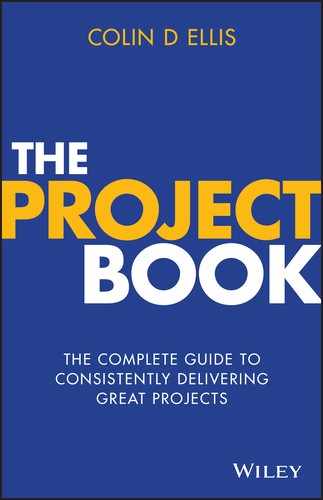CHAPTER 10
EMBRACE THE NEXT GENERATION
Midway through last year I met with a project manager in his late fifties. I’d been introduced to him following a speech I gave at a conference, and he proceeded to tell me everything that was wrong with project management and ‘young people’ today. I reached for my tablet and battered him over the head with it while tweeting ‘This. Is. How. We. Do. Things. Now’. My Instagram of him lying in the gutter got 3476 likes.
Of course none of that is true. Instead, I politely disagreed with most of what he said and provided facts to support my points. Two weeks later I ran into him again and he said he’d given my response a lot of thought and asked me to mentor him. He admitted to feeling out of touch. Ironically such self-awareness is a value keenly sought after in today’s emotionally intelligent marketplace and demonstrated that he was open to learning.
Most of the points raised in this chapter were covered in those mentoring sessions because although project management hasn’t changed that much in the past couple of decades (barring the introduction of new methods discussed in later chapters), the world most definitely has.
In 1987 I was at an early crossroads in my life. I was a fairly bright, hard-working student, but I didn’t warm to the school system so hadn’t done particularly well (actually I did really badly). So I did what many school leavers did and asked my dad to help me write letters to potential employers. Six weeks later I landed a full-time position with a national bank. That was 30 years ago, and something I just can’t imagine happening in our world today.
Baby boomers, Generation X, Millennials or Gen Y — every generation has different expectations and faces different challenges. New ways to communicate, a new language to learn (‘whatevs’, I hear you say), new tools to use and new ideas to embrace. The old movies are remade, only with better special effects.
Social media entered my life in 2007 when we immigrated to New Zealand and we needed to stay in touch with family and friends and share photos of our new life, mainly to rub in the better summers we had there. That’s the kind of thing Facebook is for and we embraced it enthusiastically. Twitter soon followed, and within three years I’d opened myself up to ways of communicating, educating myself and sharing ideas that hadn’t previously been possible.
I rejected some social media platforms that weren’t of interest or use to me, though I gave them a try first. Social media as a way of communicating is here to stay. Ignoring it, and hoping the world will go back to the way it used to be, is not an option.
By 2030 Millennials are expected to make up 75 per cent of the workforce. It’s kind of an obvious statistic, I know — it’s not like baby boomers are going to be making a comeback, is it? What’s important, though, is to recognise that the next-generation workforce is among us already and it’s time to embrace the things that are important to them. A great place to start is When Millennials Take Over by Jamie Notter and Maddie Grant. This book aims to prepare people and organisations for the way we work today, not in the future, through introducing four organisational capacities:
- Digital. It’s about the tools of our digital world, and the psychology of Millennials. Project leaders recognise Millennials have a digital-first mindset. It means finding the right tools to get the job done.
- Clear. It’s about the access we have to endless amounts of information. Millennials are said to be our most educated generation yet, and given their access to almost infinite sources of information it’s easy to see why. However, it’s how and when this information is used that is important to project leaders.
- Fluid. It’s about how we are thinking, acting and learning at all levels. Time was that project managers simply directed their teams, using their ‘positional power’ over them. That approach isn’t acceptable to Millennials. They’re looking for flatter structures, more autonomy and decision making at lower levels. For project leaders this means focusing less on ‘control’ and more on empowerment.
- Fast. It’s about taking action only when it’s needed. Millennials just want to get things done. They don’t have time for endless bureaucracy and vacillation (who does?). They want to make a decision, move on, make another decision, move on. Project leaders need to harness this eagerness to get things done quickly.
For project managers, these organisational capacities help provide an understanding of the expectations of the new generation. Our world today is dominated by technology that has made our lives immeasurably better in many ways. Sure, we’re talking less than we used to, but we can still control that, and reports of the death of direct verbal interaction have been wildly exaggerated.
Project leaders don’t do things the way they’ve always been done and expect the next generation to follow. They find new ways to leverage technology, information, ideas and a willingness to get things done in a timely manner to ensure they not only stay relevant but can motivate their next-gen project team.
